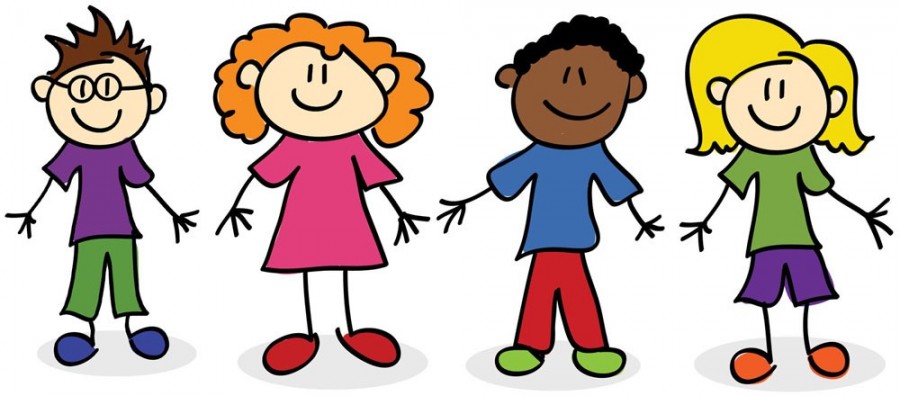Early Intervention: The Importance Of Investing In Children's Mental Well-being

Table of Contents
Recognizing the Signs of Mental Health Challenges in Children
Identifying mental health challenges in children can be challenging, as symptoms often differ from those seen in adults. Early detection, however, is crucial for effective treatment and improved outcomes.
Common Indicators of Distress
Children experiencing mental health difficulties may exhibit various behavioral, emotional, and social changes. Recognizing these signs early is key to seeking appropriate support. Some common indicators include:
- Changes in sleep patterns: Difficulty falling asleep, frequent nightmares, excessive sleeping.
- Appetite changes: Significant increase or decrease in appetite, changes in eating habits.
- Withdrawal from friends and activities: Loss of interest in previously enjoyed activities, social isolation.
- Increased irritability and mood swings: Frequent outbursts of anger, frustration, or sadness.
- Difficulty concentrating and focusing: Problems with schoolwork, attention deficits, and hyperactivity.
- Anxiety and excessive worry: Worries about separation, school, or other situations beyond the norm for their age.
- Aggression and self-harming behaviors: Physical aggression towards others or self, self-injury.
The Importance of Early Identification
Early identification of mental health challenges is paramount. The earlier intervention begins, the more effective treatment is likely to be.
- Timely intervention: Early diagnosis allows for prompt treatment, minimizing the duration and severity of symptoms.
- Minimizing long-term effects: Early intervention can prevent the escalation of problems and reduce the likelihood of long-term mental health issues.
- Improved prognosis: Children who receive early intervention often experience better overall outcomes and a higher quality of life.
Benefits of Early Intervention for Children's Mental Well-being
Investing in early intervention offers substantial benefits for a child's overall development and future.
Improved Academic Performance
Children's mental health significantly impacts their academic success. Early intervention can:
- Reduce absenteeism: Addressing mental health concerns can improve attendance and engagement in school.
- Improve concentration: Treatment can help children focus better in class and complete assignments.
- Enhance classroom participation: Children feeling better emotionally are more likely to participate actively in learning.
- Increase learning capacity: Improved mental well-being boosts cognitive function and overall learning ability.
Stronger Social and Emotional Development
Early intervention plays a vital role in fostering healthy social and emotional development. It can lead to:
- Improved relationships: Children learn better communication and conflict-resolution skills, leading to stronger relationships with peers and family.
- Increased self-esteem: Improved self-worth and confidence contribute to positive self-image and self-acceptance.
- Better coping mechanisms: Children develop healthier strategies for managing stress and emotional challenges.
- Enhanced resilience: Early intervention equips children with the skills to navigate adversity and bounce back from setbacks.
Reduced Risk of Long-Term Mental Health Issues
Early intervention significantly reduces the risk of developing more severe mental health problems later in life.
- Lower risk of substance abuse: Addressing underlying mental health issues can decrease the likelihood of substance abuse as a coping mechanism.
- Prevention of depression and anxiety disorders: Early intervention can prevent or mitigate the development of depression, anxiety, and other disorders.
- Improved overall mental health: Early intervention lays a foundation for lifelong mental well-being.
Accessing Early Intervention Services and Resources
Finding the right support for your child is crucial. Several resources can help families access early intervention services.
Identifying Available Resources
Many resources are available to help parents and caregivers find local mental health services for children.
- Websites: Numerous websites provide comprehensive listings of mental health professionals and support organizations.
- Helplines: Confidential helplines offer immediate support and guidance.
- Community organizations: Local community centers and schools often have resources and referrals for early intervention programs.
Understanding Different Treatment Approaches
Various therapeutic approaches are effective for children's mental health.
- Play therapy: This approach uses play as a medium for children to express their emotions and work through challenges.
- Family therapy: This involves the entire family in the treatment process, addressing family dynamics and improving communication.
- Cognitive behavioral therapy (CBT): CBT teaches children to identify and change negative thought patterns and behaviors.
The Economic Benefits of Investing in Early Intervention
Investing in early intervention isn't just beneficial for individual children; it also offers significant economic advantages.
Long-Term Cost Savings
Early intervention is a cost-effective approach in the long run.
- Reduced healthcare costs: Early intervention prevents the escalation of problems, reducing the need for more extensive and expensive treatments later in life.
- Decreased need for specialized care: Early intervention can prevent the need for more intensive and costly specialized care.
- Increased workforce participation: Healthy adults contribute more to the workforce, boosting the economy.
Societal Benefits
Investing in children's mental well-being brings widespread benefits to society.
- Improved productivity: Mentally healthy adults contribute more effectively to the workforce and society.
- Reduced crime rates: Addressing mental health issues in children can contribute to reduced crime rates in the long term.
- Stronger communities: Mentally healthy individuals contribute to stronger, more resilient communities.
Conclusion
Early intervention in children's mental health is not just beneficial—it's essential. By recognizing the signs of mental health challenges early, accessing available resources, and understanding different treatment approaches, we can significantly improve children's lives and contribute to a healthier society. Early intervention provides numerous benefits, ranging from improved academic performance and stronger social-emotional development to reduced risks of long-term mental health problems and considerable long-term cost savings. Invest in your child's mental well-being today. Learn more about early intervention options near you and prioritize early intervention for children's mental health – it's an investment worth making.

Featured Posts
-
 Limited Time Offer Free Captain America Items In The Fortnite Shop
May 02, 2025
Limited Time Offer Free Captain America Items In The Fortnite Shop
May 02, 2025 -
 Fortnite Item Shop A Guide To The New Feature
May 02, 2025
Fortnite Item Shop A Guide To The New Feature
May 02, 2025 -
 Alsewdyt Wadhrbyjan Teawn Aqtsady Wtjary Mtnamy
May 02, 2025
Alsewdyt Wadhrbyjan Teawn Aqtsady Wtjary Mtnamy
May 02, 2025 -
 Army Chyf Ka Byan Kshmyr Ky Khatr Ds Awr Jngyn Lrne Ky Tyary
May 02, 2025
Army Chyf Ka Byan Kshmyr Ky Khatr Ds Awr Jngyn Lrne Ky Tyary
May 02, 2025 -
 Techiman South High Court Ruling On Ndc Parliamentary Election Petition
May 02, 2025
Techiman South High Court Ruling On Ndc Parliamentary Election Petition
May 02, 2025
